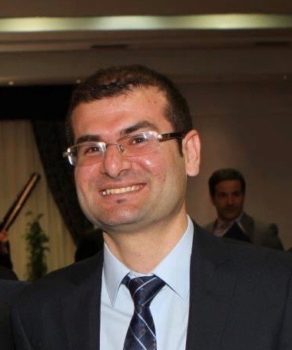Around the world, we work alongside local partners to boost their capacity to engage in a more inclusive democratic process. For example, CEPPS’ work with the Institute for Romani Culture in Albania (IRCA) amplifies the political voice of Roma communities through dialogue with local political officials to deliver a more transparent electoral process.

Bledar Taho, Executive Director of the Institute of Romani Culture in Albania (IRCA).
Increasing the strategic, planning, organizational, implementing and monitoring capacities of the IRCA team to have more impact on supporting the Roma minority in Albania. Thanks to the Institutional Development support, we advanced on the preparation of a Strategy, Fundraising and Communication Plan which builds efficiency using new methods of technology to connect with the Roma community, various stakeholders, government representatives and donors. To name a few of the actions in our revised communication plan, we are: monitoring the progress of the Roma Action Plan; establishing and aiding the National Roma Networking Organization for Advocacy (NACRIA); prioritizing youth economic and political empowerment and promoting intercultural dialogue. As a team composed of young Roma, we are trying to improve our organizational capacities in order to empower the Roma people and ensure impact on democratic processes in Albania.
There have been many moments where IRCA has felt very proud of the work done in collaboration with CEPPS.
In support of the local elections in Albania this past June, CEPPS supported the implementation of the “My Vote Counts” campaign. Through this, we taught over 5,000 Roma minority about vital civic skills such as their right to vote and related electoral processes. More than 2,000 people make the political voice of Roma heard through more dialogue and transparent electoral processes that encourage informed vote-casting and discourage illegal practices such as family voting and vote-selling/vote- buying.
For the first time ever, the Roma minority in Albania has five members elected onto local municipal councils, representing the community in decision-making processes. Even though the campaign finished in January 2020, CEPPS is still involved in ensuring equal participation in public services, which shows the sustainability of the program.
In terms of increasing the capacity of our organization, cooperation with CEPPS and NDI has helped us develop skills on how to maintain documentation, follow formats, and plan and manage the “My Vote Counts” campaign, which we are successfully implementing with other programs.
Working with the most marginalized Roma minority in Albania is an uphill battle. The Roma in Albania have the most urgent and basic needs for food, shelter and access to healthcare. We train hardworking, motivated Roma with necessary skills and tools in order to include the minority in electoral processes and increase their decision-making and democratic capacities.
We also negotiated with Albanian political parties to put five Roma minority representatives on the candidate lists for the June 2019 municipal elections. Additionally, we proposed nine other Roma candidates in different cities, five of which are now members of Municipal Councils.
To continue identifying the needs and issues facing the Roma minority in Albania and design programs that facilitate these solutions.
We have a great need for representation in the decision-making processes. To ensure future representation on policy, IRCA hopes to train 30 Roma youth on political and decision-making skills to be ready for the central elections in 2022.
Economic and youth empowerment of the minority remains a top priority, as well as reducing the level of illiteracy among Roma minority women and girls and promoting dialogue and education. IRCA plans to do this by implementing programs to improve literacy rates among Roma girls and women.